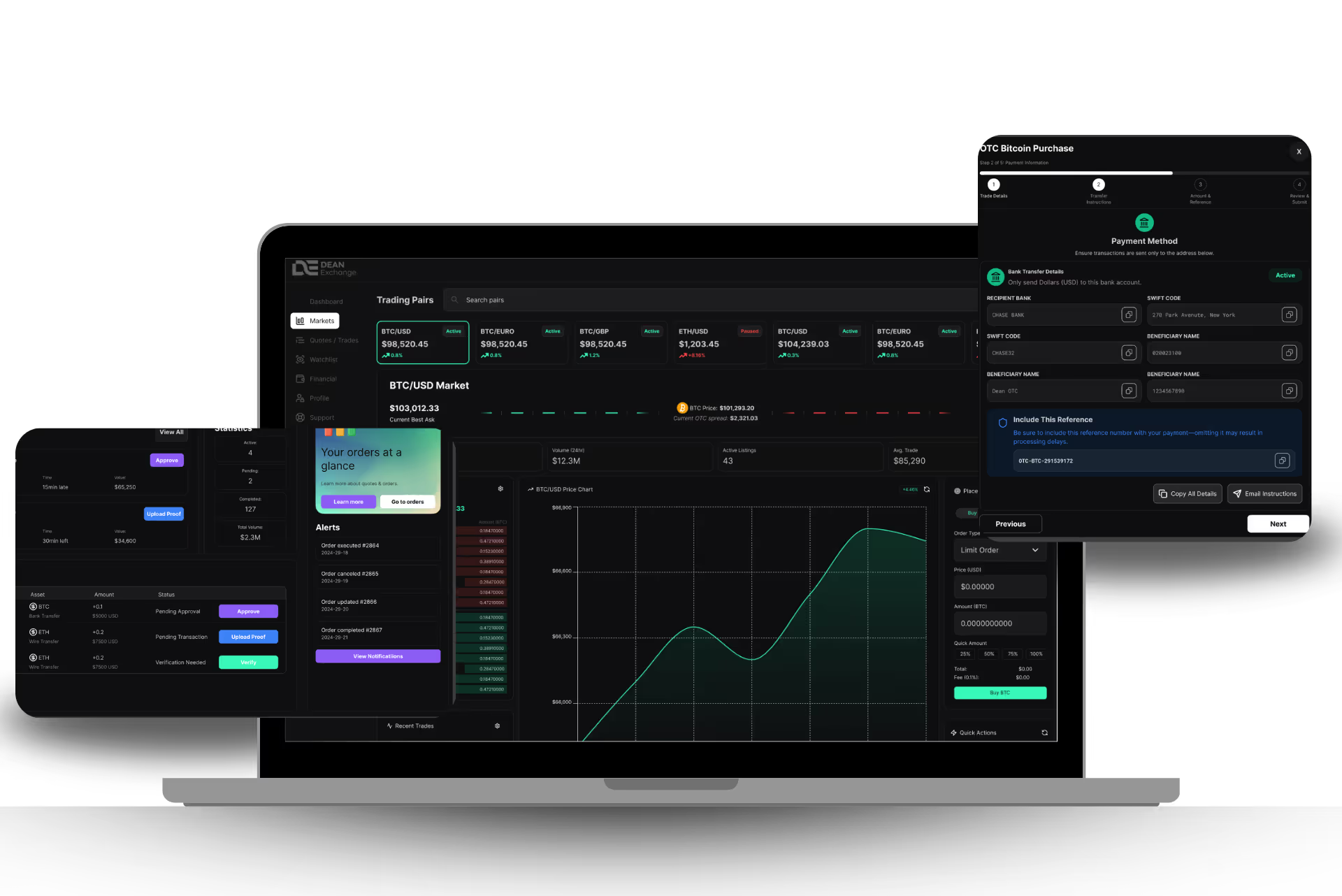By the
This is some text inside of a div block.
This is some text inside of a div block.
•
5
min read

Healthcare is one of the most data-sensitive industries in the world. From electronic health records and clinical trials to insurance claims and prescriptions, managing medical data requires absolute accuracy, trust, and privacy. With rising concerns over data breaches, fragmented systems, and compliance, the industry is now turning to blockchain technology as a long-term solution.
This article explores the role of blockchain in healthcare, how it improves data privacy and security, and the real-world use cases already proving its potential. For healthcare professionals, tech innovators, and policy leaders, Dean Exchange offers valuable resources, including live blockchain sessions, cryptocurrency tutorials, and sector-specific insights to support this transformation.
Blockchain technology is a digital, decentralized ledger that records information across a distributed network of computers. Every entry—called a block—is cryptographically secured, timestamped, and linked to the previous block. Once added, the information cannot be altered or deleted without consensus from the network.
For healthcare, this means:
Blockchain allows health systems, providers, insurers, and patients to access and manage data securely and transparently—without compromising compliance or patient trust.
Despite digitization, the healthcare industry continues to face key data-related problems:
These challenges directly impact care quality, patient experience, and operational costs.
Implementing blockchain in healthcare addresses many of these pain points:
Blockchain enables secure, interoperable health records that follow the patient—regardless of provider or system.
Example: Medicalchain (UK)
This blockchain-based platform allows patients to grant doctors access to their records using secure mobile apps. Each access request is logged on-chain, ensuring transparency and full control for the patient.
Benefits:
Counterfeit medications are a global problem. Blockchain provides traceability from manufacturer to pharmacy, ensuring drug authenticity and safety.
Example: MediLedger (U.S.)
A blockchain consortium involving Pfizer, GSK, and Amgen uses a decentralized ledger to verify drug origins and track movements across the pharmaceutical supply chain.
Impact:
Clinical trials rely on accurate data and rigorous documentation. Blockchain ensures that research data is timestamped, unalterable, and accessible to approved stakeholders.
Example: Boehringer Ingelheim + IBM Canada
The pharmaceutical giant tested blockchain to improve transparency and integrity in clinical trial workflows.
Outcome:
Smart contracts—self-executing agreements written into code—can automate claims processing, insurance verification, and payment release when pre-agreed conditions are met.
Example:
A hospital submits a treatment claim to a blockchain-based insurance system. Once the patient’s coverage and eligibility are verified on-chain, the smart contract initiates payment instantly—without third-party delays.
While blockchain in healthcare promotes transparency, it must also protect privacy. Leading blockchain platforms enable selective data access, encryption, and patient consent tracking—key components of HIPAA (U.S.) and GDPR (EU) compliance.
Dean Exchange regularly covers compliance-ready blockchain models through expert-led cryptocurrency tutorials and live blockchain sessions tailored for legal, medical, and administrative professionals.
While blockchain holds promise, adoption must be thoughtful and strategic. Key considerations include:
Dean Exchange helps organizations evaluate blockchain tools, platforms, and partners—offering practical resources to assess readiness, plan pilots, and measure ROI.
The healthcare industry is also seeing movement in tokenized incentives and decentralized health platforms. As crypto market trends evolve, these developments may include:
Healthcare is gradually merging with the broader Web3 ecosystem. Understanding how blockchain intersects with these developments gives professionals a head start in future-proofing their systems.
At Dean Exchange, we bridge the gap between blockchain innovation and real-world implementation in healthtech. Here’s how we support healthcare professionals:
Explore real-world demos and expert-led walkthroughs focused on blockchain in healthcare. These sessions cover topics like data sharing, supply chain, and smart contracts in a healthcare context.
Learn what blockchain is, how smart contracts work, and how decentralized platforms can be applied to your organization—all in plain language.
Stay ahead of the curve with curated updates on crypto market trends, healthcare token projects, and global case studies.
From hospitals to startups, we offer blockchain readiness assessments and onboarding programs to help teams explore integration opportunities safely and strategically.
As healthcare data becomes more valuable and vulnerable, the need for secure, transparent, and patient-centric systems is more urgent than ever. Blockchain technology offers a robust foundation for solving these challenges—ensuring that data is not only protected, but also useful, accessible, and trustworthy.
For healthtech innovators, IT leaders, and compliance teams, now is the time to explore blockchain—not as a buzzword, but as a practical tool for transformation.
Dean Exchange is your partner on that journey, offering expert guidance, live training, and insights designed for the healthcare ecosystem.


Join our newsletter for exclusive insights, breaking crypto trends, and learning opportunities—delivered straight to your inbox.